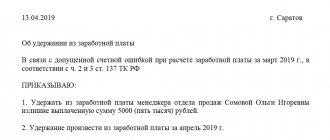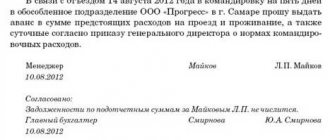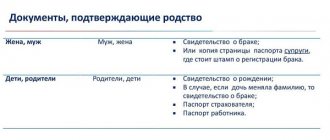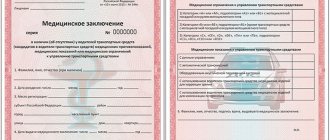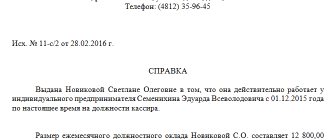(official current edition, full text of Article 131 of the Code of Civil Procedure of the Russian Federation with comments)
1. The statement of claim is submitted to the court in writing.
2. The statement of claim must indicate:
1) the name of the court to which the application is submitted;
2) the name of the plaintiff, his place of residence or, if the plaintiff is an organization, its location, as well as the name of the representative and his address, if the application is submitted by a representative;
3) the name of the defendant, his place of residence or, if the defendant is an organization, its location;
4) what is the violation or threat of violation of the rights, freedoms or legitimate interests of the plaintiff and his demands;
5) the circumstances on which the plaintiff bases his claims and evidence confirming these circumstances;
6) the price of the claim, if it is subject to assessment, as well as the calculation of the collected or disputed amounts of money;
7) information about compliance with the pre-trial procedure for contacting the defendant, if this is established by federal law or provided for by the agreement of the parties;
 list of documents attached to the application.
list of documents attached to the application.
The application may indicate telephone numbers, fax numbers, email addresses of the plaintiff, his representative, the defendant, other information relevant to the consideration and resolution of the case, as well as the plaintiff’s requests.
3. The statement of claim brought by the prosecutor in defense of the interests of the Russian Federation, constituent entities of the Russian Federation, municipalities or in defense of the rights, freedoms and legitimate interests of an indefinite number of persons must indicate what exactly their interests are, what right is violated, and also there must be a reference to a law or other regulatory legal act that provides ways to protect these interests.
If the prosecutor appeals to protect the legitimate interests of a citizen, the application must contain a justification for the impossibility of bringing a claim by the citizen himself or an indication of the citizen’s appeal to the prosecutor.
4. The statement of claim is signed by the plaintiff or his representative if he has the authority to sign the statement and present it to the court.
A statement of claim submitted by filling out a form posted on the official website of the court on the Internet, containing a request to secure the claim, is signed with an enhanced qualified electronic signature in the manner established by the legislation of the Russian Federation.
The meaning of the articles
Meaning of Art. 131, 132 of the Civil Procedure Code of the Russian Federation is difficult to overestimate. They form the basis of the requirements for all applications submitted to the court. This includes claim, simplified, and special proceedings.
Failure to comply with the provisions of the law obliges the judge to leave the claim without progress. The application remains in an interim state. Next, the claimant is given time to correct errors and omissions.
Due to some violations, the claim is immediately returned to the applicant, and after the errors are corrected, it must be filed again.
Identification of some shortcomings in the application after the commencement of consideration of the case on the merits gives the court the right to close the case and leave the claim without consideration, canceling all previous decisions.
The conclusion is based on judicial practice on the application of Art. 131, 132 of the Civil Procedure Code of the Russian Federation, including by judges of the Supreme Court of the country.
Returning the claim does not stop the statute of limitations from running, and the plaintiff risks subsequently losing the right to go to court.
Commentary on Article 132 of the Code of Civil Procedure of the Russian Federation
1. Based on the content of Art. 333.18 of the Tax Code of the Russian Federation, the fact of payment of the state duty by the payer in non-cash form is confirmed by a payment order with a note from the bank or the relevant territorial body of the Federal Treasury (another body that opens and maintains accounts), including one that makes payments in electronic form, about its execution. Typically, proof of payment of the state duty in non-cash form is a payment order, on which the date of debiting the funds from the payer’s account is entered in the “Written off from the payer’s account” field (in case of partial payment - the date of the last payment), in the “Bank Marks” field - the bank stamp and signature of the responsible executor (clause 3.8 part 1 of the Regulations on non-cash payments in the Russian Federation, approved by the order of the Central Bank of the Russian Federation dated October 3, 2002 N 2-P).
2. For all claims brought against the carrier, the court must require the plaintiff to attach to the statement of claim a copy of the claim and the carrier’s response regarding the complete or partial rejection of the claim, and in the case where the claim is left unanswered, evidence of the claim.
3. Copies of the application and documents do not need to be printed, but must at a minimum be handwritten in legible handwriting.
4. Copies do not need to be notarized. Their compliance with the original can be verified in court, and if necessary, their authenticity can be certified by a judge or other court employee (court secretary, archivist).
USEFUL INFORMATION: Termination of employment relations with the sole breadwinner in the family: is it possible to dismiss or lay off an employee?
5. For an application for the protection of electoral rights that is subject to consideration by a court with the participation of a prosecutor, a copy of the application for the prosecutor is not required. By virtue of the commented article, the statement of claim is accompanied by its copies for defendants and third parties, and in relation to this category of cases - copies of the statement for interested parties. The Code of Civil Procedure of the Russian Federation does not classify the prosecutor as such. The fact that, in accordance with Part 3 of Art. 260 of the Code of Civil Procedure of the Russian Federation, cases on the protection of the electoral rights of citizens are considered with the mandatory participation of the prosecutor, which is not a basis for the applicant to attach a copy to the application submitted by him for the prosecutor. The prosecutor in this case, in accordance with Art. 45 of the Code of Civil Procedure of the Russian Federation enters into the process to give an opinion, and is not an interested party for whom a copy of the application must be attached.
Claim structure
Based on the above, failure to comply with Art. 131, 132 of the Civil Procedure Code of the Russian Federation is considered significant, although it is not always so from the point of view of the common person. The following are the elements of the claim that you need to pay attention to:
- name of the court;
- Full name or name of the plaintiff, place of residence or location;
- Full name or name of the defendant, place of residence or location;
- similar information about the representative, if the application was submitted by him;
- facts and evidence supporting the plaintiff’s opinion;
- the essence of violations or threats to rights and interests;
- the price of the claim, unless otherwise provided by law;
- information on the implementation of the pre-trial dispute resolution procedure;
- claim requirements;
- list of attached copies of documents.
Article 131 of the Code of Civil Procedure of the Russian Federation
1. The statement of claim is submitted to the court in writing.
2. The statement of claim must indicate:
1) the name of the court to which the application is submitted;
2) the name of the plaintiff, his place of residence or, if the plaintiff is an organization, its location, as well as the name of the representative and his address, if the application is submitted by a representative;
3) the name of the defendant, his place of residence or, if the defendant is an organization, its location;
4) what is the violation or threat of violation of the rights, freedoms or legitimate interests of the plaintiff and his demands;
5) the circumstances on which the plaintiff bases his claims and evidence confirming these circumstances;
6) the price of the claim, if it is subject to assessment, as well as the calculation of the collected or disputed amounts of money;
7) information about compliance with the pre-trial procedure for contacting the defendant, if this is established by federal law or provided for by the agreement of the parties;
 list of documents attached to the application.
list of documents attached to the application.
The application may indicate telephone numbers, fax numbers, email addresses of the plaintiff, his representative, the defendant, other information relevant to the consideration and resolution of the case, as well as the plaintiff’s requests.
3. The statement of claim brought by the prosecutor in defense of the interests of the Russian Federation, constituent entities of the Russian Federation, municipalities or in defense of the rights, freedoms and legitimate interests of an indefinite number of persons must indicate what exactly their interests are, what right is violated, and also there must be a reference to a law or other regulatory legal act that provides ways to protect these interests.
If the prosecutor appeals to protect the legitimate interests of a citizen, the application must contain a justification for the impossibility of bringing a claim by the citizen himself or an indication of the citizen’s appeal to the prosecutor.
4. The statement of claim is signed by the plaintiff or his representative if he has the authority to sign the statement and present it to the court.
A statement of claim submitted by filling out a form posted on the official website of the court on the Internet, containing a request to secure the claim, is signed with an enhanced qualified electronic signature in the manner established by the legislation of the Russian Federation.
Where is the claim filed?
The court is indicated as the first point of the claim in Articles 131 and 132 of the Civil Procedure Code of the Russian Federation. The applicant, with a few exceptions, has the right to file an application at the place of residence or location of the defendant. With the choice of a district or city court by a court (in small localities), everything is not so difficult.
The Magistrate's Court serves a certain number of streets. And it depends on the exact knowledge of the defendant’s residential address or location which of the magistrates to contact.
Features of magistrates' courts
According to Art. 23, 131, 132 of the Civil Procedure Code of the Russian Federation, they consider cases from a limited list. Most often these are massive, uncomplicated disputes. More time is spent on paperwork than on proceedings. An example is issuing orders based on applications from citizens and organizations.
District courts consider cases within the jurisdiction of magistrates' courts if part of the claims in the application must be considered at the district level. For example, a woman asks to establish paternity and order alimony payments.
If the application contains a request to collect alimony in cash, a claim must be filed in the district court.
Information about the participants in the case
Articles 131 and 132 of the Civil Procedure Code of the Russian Federation refer to the last name, first name, and patronymic of the applicant. Lawyers drafting documents ask to see your passport in order to avoid mistakes in spelling the person’s last and first name.
What does it mean: “Indicate the name of the organization”? This is a designation of the organizational and legal form (LLC, FKU, etc.) and a word or phrase enclosed in quotation marks. The correct indication is, for example, Petrov and Vasiliev LLC.
The address is entered in the application as the place of residence. If a person does not live at the place of registration, it is better to indicate actual data. It is not necessary to enter information about the place of registration.
The same applies to indicating the full name and place of residence or location of the defendant.
The location is noted if the party to the case is an organization. Its representative can indicate several addresses. It is worth paying attention to the address intended specifically for receiving correspondence.
Contents of the statement of claim
The general requirements for the form and content of the claim are specified in Art. 131 and 132 of the Code of Civil Procedure of the Russian Federation.
- name of the court to which the application is filed;
- the name of the plaintiff, his place of residence or, if the plaintiff is an organization, its location, as well as the name of the representative and his address, if the application is submitted by a representative;
- the name of the defendant, his place of residence or, if the defendant is an organization, its location;
- what is the violation or threat of violation of the rights, freedoms or legitimate interests of the plaintiff and his demands;
- the circumstances on which the plaintiff bases his claims and evidence supporting these circumstances;
- the price of the claim, if it is subject to assessment, as well as the calculation of the collected or disputed amounts of money;
- information about compliance with the pre-trial procedure for contacting the defendant, if this is established by federal law or provided for by the agreement of the parties;
- list of documents attached to the application.
The application may indicate telephone numbers, fax numbers, email addresses of the plaintiff, his representative, the defendant, other information relevant to the consideration and resolution of the case, as well as the plaintiff’s requests.
The statement of claim is signed by the plaintiff or his representative if he has the authority to sign the statement and present it to the court.
The following are attached to the statement of claim:
- its copies in accordance with the number of defendants and third parties;
- a document confirming payment of the state duty;
- power of attorney or other document certifying the full representative of the plaintiff;
- documents confirming the circumstances on which the plaintiff bases his claims, copies of these documents for defendants and third parties, if they do not have copies;
- the text of the published normative legal act in case of challenge;
- evidence confirming the implementation of the mandatory pre-trial dispute resolution procedure, if such a procedure is provided for by federal law or agreement;
- calculation of the recovered or disputed amount of money, signed by the plaintiff, his representative, with copies in accordance with the number of defendants and third parties.
A claim is a structurally complex legal entity, and therefore the legislation allows us to identify a number of elements in it. The elements of a claim are its internal parts, reflecting the structure of the claim. It is generally accepted to distinguish two elements of a claim: the subject and the basis of the claim.
The subject of the claim is understood as a specific demand of the plaintiff against the defendant, for example, to declare the contract invalid.
The right to determine the subject of the claim belongs only to the plaintiff, who, for example, in a dispute arising from civil legal relations, must himself choose the appropriate method of protecting civil rights: recognition of rights, awarding duties in kind, compensation for losses, collection of penalties, etc. in accordance with Art. . 12 of the Civil Code of the Russian Federation.
USEFUL INFORMATION: Money instead of land for large families
The basis of the claim is understood as the circumstances from which the plaintiff’s right of claim arises, on which the plaintiff bases them.
The cause of action can also be divided into factual and legal. The factual basis of the claim is a set of legal facts, and the legal basis is an indication of the specific rule of law on which the plaintiff’s claim (or set of rules) is based.
The elements of the claim are the main criterion in determining the identity of the claims, since the identity of the claims is determined by the coincidence of the subject, basis and parties of the claim. If the parties, the subject or the basis of the claim do not coincide, for example, new legal facts appear in the basis of the claim, then, accordingly, it is impossible to talk about the identity of the claims, and the plaintiff has the right to file the claim again in court.
The subject and basis of the claim determine the boundaries of the subject of proof, the limits of the trial. The right to change them belongs only to the plaintiff.
Representative
Art. 131, 132 of the Civil Procedure Code of the Russian Federation imposes on the representative the obligation to fully indicate the last name, first name and patronymic, and place of residence. If the representative is an organization, indicate the full name and address of the office.
The person performing representative tasks attaches a copy of the power of attorney. If the prosecutor acts in this capacity, the claim states the reasons for filing a lawsuit on behalf of the citizen or organization.
In Art. 131, 132 of the Civil Procedure Code of the Russian Federation, only the prosecutor is given the right to file a lawsuit in defense of the rights of an unlimited number of people or organizations. He has the right to go to court if there has been a violation of the rights of the state and municipalities. Reasons for going to court: results of inspections, statements from citizens, information received from other authorities.
Judicial practice under Art. 131 Code of Civil Procedure of the Russian Federation
Resolution of the Plenum of the Supreme Court of the Russian Federation dated December 26, 2017 N 57 “On some issues of application of legislation regulating the use of documents in electronic form in the activities of courts of general jurisdiction and arbitration courts”
7. An appeal to the court on behalf of a legal entity can be signed by a person who has the right to act without a power of attorney, or by a representative with a personal enhanced qualified electronic signature of an individual or the signature of an individual performing the relevant official duties, the qualified certificate of which was issued to this legal entity (part 3 of the article 14 of the Law on Electronic Signatures).
Taking into account these provisions, when accepting an appeal to the court on behalf of a legal entity signed with an enhanced qualified electronic signature, it is necessary to check whether only an individual is indicated in the qualified certificate as its owner (personal signature of an individual) or the name of the legal entity is indicated along with the individual, to whom this certificate was issued (signature of the individual performing official duties).
In this case, an appeal to the court on behalf of a legal entity is not considered signed if an individual is not indicated as the owner of a qualified certificate (part 4 of article 131 of the Code of Civil Procedure of the Russian Federation, part 1 of article 125 of the Arbitration Procedure Code of the Russian Federation, part 1 of article 125 of the CAS RF, part 3 of article 14 of the Law about electronic signature).
Resolution of the Plenum of the Supreme Court of the Russian Federation dated November 5, 1998 N 15 “On the application of legislation by courts when considering cases of divorce”
7. The statement of claim for divorce must meet the requirements of Art. Art. 131, 132 Code of Civil Procedure of the Russian Federation. It, in particular, indicates when and where the marriage was registered; whether there are common children, their ages; whether the spouses have reached an agreement on their maintenance and upbringing; in the absence of mutual consent to dissolve the marriage - the reasons for the dissolution of the marriage; Are there other claims that can be considered simultaneously with the claim for divorce. The application is accompanied by: a marriage certificate, copies of children’s birth certificates, documents on earnings and other sources of income of the spouses (if a claim for alimony is filed) and other necessary documents.
Determination of the Supreme Court of the Russian Federation N 78-КГ18-75
Circumstances: The ruling returned the statement of claim for recovery of insurance compensation within the limit of liability and compensation for damage due to failure to eliminate deficiencies within the prescribed period.
Decision: The determination is cancelled. The material was sent to the court for consideration, since the plaintiff, objectively due to the fault of the court, did not have the opportunity to timely fulfill the requirements presented to the statement of claim; accordingly, the plaintiff was deprived of the opportunity, in accordance with the current legislation, to eliminate the identified deficiencies.
In accordance with the provisions of Article 136 of the Civil Procedure Code of the Russian Federation, the judge, having established that the statement of claim was filed in court without complying with the requirements established in Articles 131 and 132 of the said code, makes a ruling to leave the statement without progress, of which the person who filed the statement is notified. and provides him with a reasonable period to correct the deficiencies (Part 1).
Determination of the Supreme Court of the Russian Federation N 50-КГ18-22
Requirement: On establishing the fact of acceptance of an inheritance, recognition of property rights in the order of inheritance, and invalidation of records on registration of property rights in the Unified State Register of Real Estate.
Circumstances: The plaintiffs, as heirs by right of representation, actually accepted the inheritance, taking for themselves things belonging to the testator, which, in their opinion, indicates the actual acceptance of the inheritance.
Decision: The claim was partially rejected, since the court restored the deadline for accepting the inheritance, but did not take into account that the requirement to establish the fact of acceptance of the inheritance and the requirement to restore the deadline for accepting the inheritance are mutually exclusive; the court had no grounds for going beyond the stated claims .
According to the explanations given in paragraph 21 of the resolution of the Plenum of the Supreme Court of the Russian Federation dated June 19, 2012 No. 13 “On the application by courts of the norms of civil procedural legislation governing proceedings in the court of appeal”, within the meaning of Article 327 of the Civil Procedure Code of the Russian Federation, re-examination case in the court of appeal involves checking and assessing the factual circumstances of the case and their legal qualification within the framework of the arguments of the appeal, presentation and within the framework of those requirements that have already been the subject of consideration in the court of first instance.
Civil procedural legislation establishes that the statement of claim must indicate the plaintiff’s claim against the defendant and the circumstances on which the plaintiff bases his claim (Articles 131, 151 of the Code of Civil Procedure of the Russian Federation). In this regard, the subject of the claim is the specific substantive legal requirement that the plaintiff makes against the defendant and regarding which the court must make a decision in the case.
In accordance with Part 1 of Article 39 of the Civil Procedure Code of the Russian Federation, the plaintiff has the right to change the basis or subject of the claim, increase or decrease the amount of the claim, or abandon the claim.
Thus, the right to determine the subject of the claim and the method of protecting civil rights belongs only to the plaintiff, and therefore, based on the stated requirements, all other formulations and interpretation of this requirement by the court, and not by the plaintiff, actually mean going beyond the limits of the claim made by the plaintiff to the defendant.
Description of the circumstances
In accordance with Art. 131, 132 of the Civil Procedure Code of the Russian Federation, the plaintiff explains why the dispute arose. Description includes a statement of events, actions or inactions. The information must be presented in such a way that it is clear to the judge what the violations on the part of the defendant are. The text must not contain emotional expressions or provide information that is not relevant from the point of view of the law. For example, the characteristics of a person in a dispute over the amount of debt collection. Extra information overloads the claim and does not allow the judge to quickly understand the essence of the dispute and sort it out, spending a minimum of time.
Requirements for the statement of claim - Art. 131, 132 Code of Civil Procedure of the Russian Federation
Home >> Services of lawyers in civil cases >> Requirements for a statement of claim - Art. 131, 132 Code of Civil Procedure of the Russian Federation
Article 131. FORM AND CONTENT OF THE STATEMENT OF CLAIM
1. The statement of claim is submitted to the court in writing. 2. The statement of claim must indicate: 1) the name of the court to which the application is submitted; 2) the name of the plaintiff, his place of residence or, if the plaintiff is an organization, its location, as well as the name of the representative and his address, if the application is submitted by a representative; 3) the name of the defendant, his place of residence or, if the defendant is an organization, its location; 4) what is the violation or threat of violation of the rights, freedoms or legitimate interests of the plaintiff and his demands; 5) the circumstances on which the plaintiff bases his claims and evidence confirming these circumstances; 6) the price of the claim, if it is subject to assessment, as well as the calculation of the collected or disputed amounts of money; 7) information about compliance with the pre-trial procedure for contacting the defendant, if this is established by federal law or provided for by the agreement of the parties; list of documents attached to the application. The application may indicate telephone numbers, fax numbers, email addresses of the plaintiff, his representative, the defendant, other information relevant to the consideration and resolution of the case, as well as the plaintiff’s requests. 3. The statement of claim brought by the prosecutor in defense of the interests of the Russian Federation, constituent entities of the Russian Federation, municipalities or in defense of the rights, freedoms and legitimate interests of an indefinite number of persons must indicate what exactly their interests are, what right is violated, and also there must be a reference to a law or other regulatory legal act that provides ways to protect these interests. If the prosecutor appeals to protect the legitimate interests of a citizen, the application must contain a justification for the impossibility of bringing a claim by the citizen himself or an indication of the citizen’s appeal to the prosecutor. 4. The statement of claim is signed by the plaintiff or his representative if he has the authority to sign the statement and present it to the court.
2) the name of the plaintiff, his place of residence or, if the plaintiff is an organization, its location, as well as the name of the representative and his address, if the application is submitted by a representative; 3) the name of the defendant, his place of residence or, if the defendant is an organization, its location; 4) what is the violation or threat of violation of the rights, freedoms or legitimate interests of the plaintiff and his demands; 5) the circumstances on which the plaintiff bases his claims and evidence confirming these circumstances; 6) the price of the claim, if it is subject to assessment, as well as the calculation of the collected or disputed amounts of money; 7) information about compliance with the pre-trial procedure for contacting the defendant, if this is established by federal law or provided for by the agreement of the parties; list of documents attached to the application. The application may indicate telephone numbers, fax numbers, email addresses of the plaintiff, his representative, the defendant, other information relevant to the consideration and resolution of the case, as well as the plaintiff’s requests. 3. The statement of claim brought by the prosecutor in defense of the interests of the Russian Federation, constituent entities of the Russian Federation, municipalities or in defense of the rights, freedoms and legitimate interests of an indefinite number of persons must indicate what exactly their interests are, what right is violated, and also there must be a reference to a law or other regulatory legal act that provides ways to protect these interests. If the prosecutor appeals to protect the legitimate interests of a citizen, the application must contain a justification for the impossibility of bringing a claim by the citizen himself or an indication of the citizen’s appeal to the prosecutor. 4. The statement of claim is signed by the plaintiff or his representative if he has the authority to sign the statement and present it to the court.
Article 132. DOCUMENTS ATTACHED TO THE STATEMENT OF CLAIM
The statement of claim is accompanied by: its copies in accordance with the number of defendants and third parties (i.e. if there is only one defendant, then you submit two copies of all documents to the expedition, one to the court and one to the defendant); a document confirming payment of the state fee (take details from the court’s website, submit one original copy and the rest in copies); power of attorney or other document certifying the authority of the plaintiff’s representative (only if the plaintiff’s interests are represented by proxy); documents confirming the circumstances on which the plaintiff bases his claims, copies of these documents for defendants and third parties, if they do not have copies (for example, a receipt or loan agreement, copies of these documents are provided);
evidence confirming the implementation of the mandatory pre-trial procedure for resolving a dispute, if such a procedure is provided for by federal law or agreement (here I will introduce the sending of a claim to the defendant before filing a statement of claim, but not in all cases this must be done); calculation of the amount of money recovered or disputed, signed by the plaintiff, his representative, with copies in accordance with the number of defendants and third parties (calculation of the cost of the claim is prepared 1) for property claims and 2) if the calculations are complex, i.e. interest, penalties, etc.). The version of the Code of Civil Procedure of the Russian Federation was updated on the website on June 25, 2021.
- COMMENTARY TO ARTICLES 131, 132 of the Code of Civil Procedure of the Russian Federation
- APPLICATION TO COURT TO ELIMINATE DEFECTS
- COURT PRACTICE FOR COLLECTION OF ALIMONY
- FORCED DE-REGISTRATION AT PLACE OF RESIDENCE
- COURT PRACTICE ON APARTMENT BAY
- JUDICIAL PRACTICE ON CASCO
- JUDICIAL PRACTICE IN FAMILY CASES
Dispute price
Recognition of rights to property, collection of debt, damage - all this affects the material interests of the parties. Why does a judge need to know how much the plaintiff values his claims? Based on them, the amount of state duty is calculated and paid. The calculation rules are established by the Tax Code of the Russian Federation.
For some cases, a fixed price is set. This is allowed if it is impossible to calculate the amount of the claim or if a fixed fee has been established.
Application of pre-trial procedures
The plaintiff first sends a claim to the defendant or sends a complaint to the competent authority, for example, to the appeal commission of Rosreestr. Without information about an attempt to resolve the dispute in a different way, the court will return the application to the plaintiff.
If we consider Art. 131, 132, 264 of the Civil Procedure Code of the Russian Federation, in cases of special proceedings, documents are required indicating the need for the court to participate in resolving the case.
Pre-trial procedures are considered to be a formality, but sometimes they help. In addition, the response from the body or organization that violated the rights provides insight into its position.
The claim is accompanied by either a response or evidence of the filing of the complaint or claim if it was not answered in a timely manner (evidence is the notification and inventory issued by mail).
If, before filing a claim in court, the law obliges you to apply for an order, you must attach the court’s ruling to cancel the order or refuse to issue it.
Features of enforcement proceedings
Issues of suspension, termination, postponement, installment plan and resumption of proceedings are considered by the courts that made the decision according to the rules of civil procedure. The same is done when appealing the size of the property assessment.
Appeals against actions or inactions, or other decisions are ensured within the framework of administrative proceedings.
The conclusion follows from the provisions of Art. 131, 132 and 441 of the Civil Procedure Code of the Russian Federation in the latest edition.
Claim requirements
In Art. 131, 132 of the Civil Procedure Code of the Russian Federation “I ask” is not mentioned, but it is this word that separates the text of the claim from the list of demands.
Their number is not limited. The choice of wording depends on the plaintiff. Firstly, they must be consistent and not contradict each other, and secondly, they must be correct - comply with the norms of the law. For example, to collect a sum of money, and not to demand it, to recognize the right to a thing, indicating its characteristics in accordance with the register of rights.
Requirements are one of the most difficult stages of writing a claim, where the knowledge of a lawyer is in demand.
What papers are attached to the claim?
Art. 132 of the Code of Civil Procedure offers a short list:
- copies of the claim and attached documents according to the number of participants in the process;
- document confirming payment of the fee (receipt or payment order);
- papers confirming the facts referred to by the plaintiff;
- a copy of the papers about the attempt to resolve the case without the participation of the court;
- calculation of the amount that the applicant requests to collect (a special table from which it is clear why such an amount is requested).
Cases of each category have a standard set of documents. And the judges in the summons (or ruling on opening a case) suggest a list of necessary documents.
Civil Procedure Code
This code provides for all the rules and procedures for submitting all statements of claim. As for s. 131 of the Civil Procedure Code, then it establishes the exact form and content of the submitted document. It should consist of:
- the name of the court to which the claim is expected to be submitted;
- personal data of the applicant, or the name of his company, address and exact location;
- the name of the defendant and his location details, or the address of the organization with which the dispute is being waged;
- the reason for the appeal and the essence of the violation;
- any evidence of violations and infringements of the plaintiff’s rights;
- the amount of the penalty (if a monetary refund is provided for in this case);
- information about preliminary attempts to reach an agreement between the parties;
- a list of documentation that must be presented in court;
In this application, it is necessary to clearly indicate the fact of violation and all claims against the defendant. This will not only speed up the proceedings, but will also more clearly explain the essence of the appeal. It is also necessary to indicate the necessary link to the necessary law or legal act, which can somehow support and protect the rights of the plaintiff.
The statement of claim must be confirmed by the signature of the person applying. The legislation of the Russian Federation provides for online circulation using Internet resources. Such applications must be supported by the electronic signature of the applicant.
Code of Civil Procedure of the Russian Federation
Regarding Art. 132 of the Code of Civil Procedure, it describes the list of documentation that must be attached to the claim. To present you will need:
- copies of all identification documents of both parties;
- a receipt, which is confirmation of payment of the state duty;
- power of attorney (if the application is not submitted by the applicant in person);
- documentation that confirms one or another basis on which the applicant relies;
- documentary evidence of pre-trial settlement of the problem (if there is a federal law on this issue);
- accurate calculation of the amount expected to be settled in court;
USEFUL INFORMATION: Seizure of property for non-payment of alimony
Note! The period for filing a claim depends only on the type of offense. The period of time provided for filing a claim is limited by the statute of limitations for a particular type of violation
The general limitation period for a statement of claim, as approved by the legislation of the Russian Federation, provides for no more than three years. But some subparagraphs of the Code of Civil Procedure provide for a three-month application period. For example, if a working person sends a petition to the justice authorities to resolve a dispute between her and the employer.
The cause of this conflict may be non-payment of wages, violation of employee rights, etc. The so-called limitation period can only be applied if one of the parties requests it. Missing this period cannot be grounds for complete rejection of the claim.
